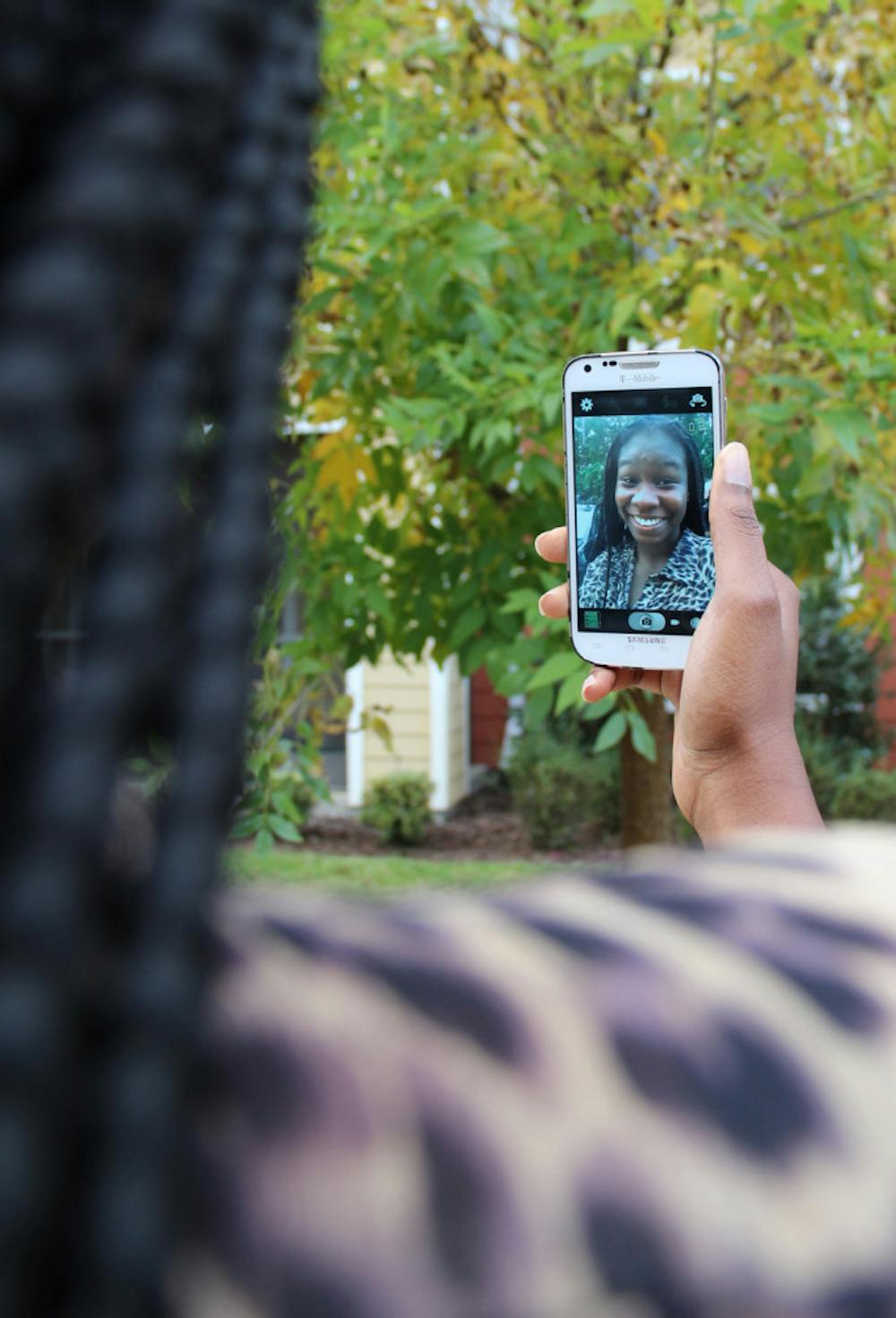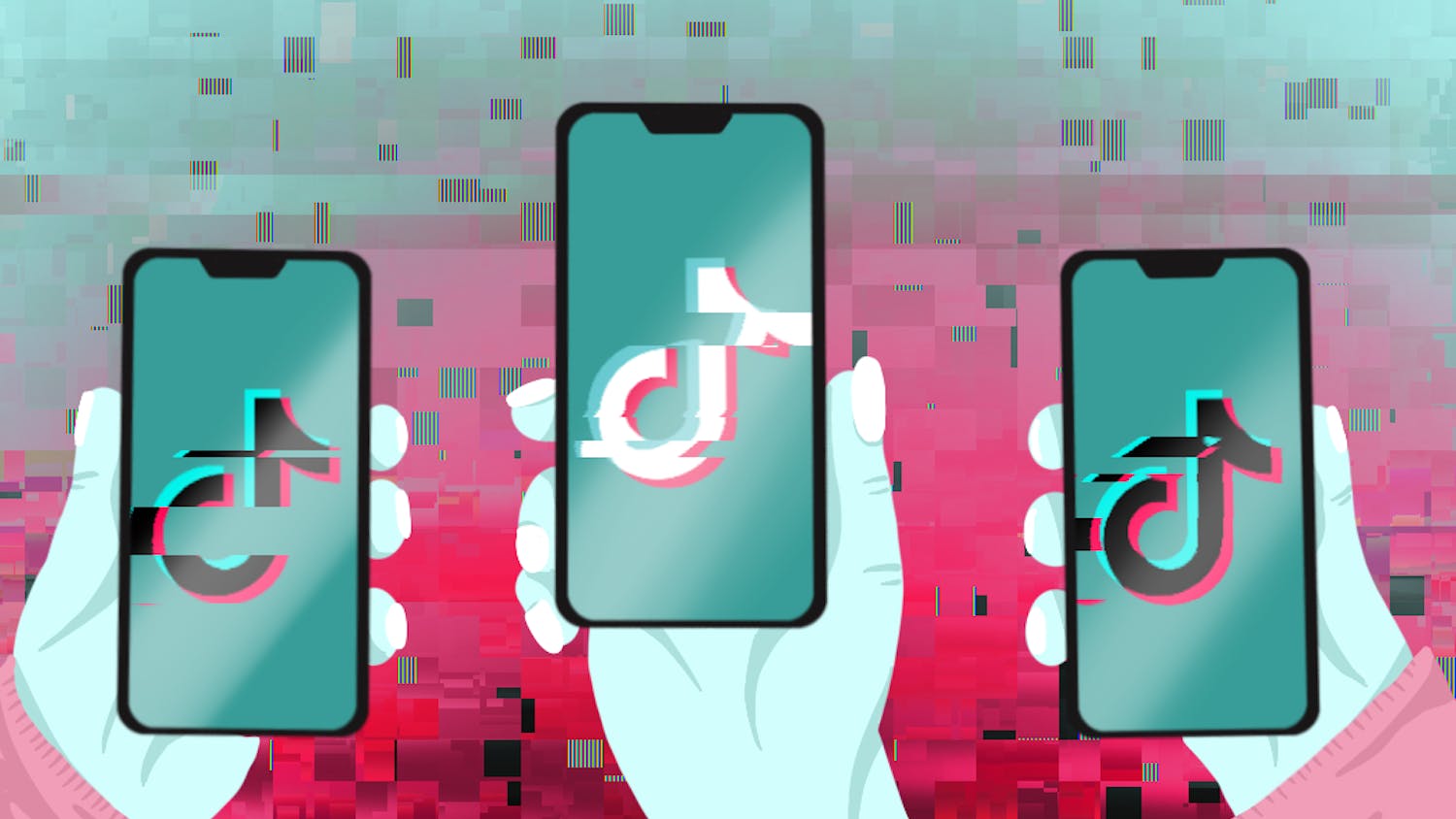That girl puckering her lips at her phone in class is now validated by Oxford Dictionaries.
The editors of the reference guide have revealed their 2013 word of the year: “selfie.” And, like it or not, many students say they can’t deny the amount of face time the word gets.
Selfie is defined as “a photograph that one has taken of oneself, typically one taken with a smartphone or webcam and uploaded to a social media website,” according to the Oxford Dictionaries, which added selfie earlier in the year. It beat out words like “twerk,” “binge-watch” and “bitcoin.”
Last year’s Oxford Dictionaries word of the year was “GIF.”
Language change such as the acceptance of the word selfie occurs when people need different ways to express new ideas and to help show off their social identities, said UF linguistics professor Wind Cowles.
She said that type of change has been happening since language began.
“Social media, and the (Internet) generally, encourages communication among people who might otherwise have never come into contact, and allows us to form, expand and maintain social groups in an unprecedented way,” Cowles said in an email interview. “As a linguist, I find the language change that emerges from that social interaction to be fascinating.”
For many students, the winning word doesn’t come as a surprise because in a social-media-driven society, selfie is thrown around all the time.
Molly Delattre, a 22-year-old UF English senior, is not a supporter or participant but still said she finds it appropriate the word won the top title.
“I hear the word at least 10 times a day, if not more,” Delattre said.
Austin Goldman, a 22-year-old first-year UF law student, said he does use the word, but it’s usually with a sneer.
“It’s a pretty relevant choice,” he said. “If I use the word, it’s mostly ironically or jokingly.”
Snapchat, the popular smartphone application used to send pictures to other users for mere moments, has made it easier than ever to send selfies to anybody you want.
Samantha Kurzman, a 21-year-old UF public relations senior, said it’s commonplace to upload selfies to various online media sites.
“You send pretty pictures of yourself to crushes and also really ugly pictures of yourself to best friends,” Kurzman said.
Other students aren’t so welcoming of the movement.
Selfie is technically an abbreviation for the term “self-portrait,” but that doesn’t mean English speakers are getting lazier.
Cowles said new commonly used words show innovation.
“These new words like ‘selfie’ are not indicators of being linguistically lazy,” she said. “Language change is language innovation in the sense that speakers will make new words when they need them for new ideas.”
This story has been corrected from its original version to fix a misspelling and editing error with regards to professor Cowles. A version of this story ran on page 1 on 11/21/2013 under the headline "Snap away, selfie-lovers: Dictionary nods to trend"
Jane Oni, a 20-year-old UF family, youth and community sciences junior, poses for a selfie Tuesday afternoon.






